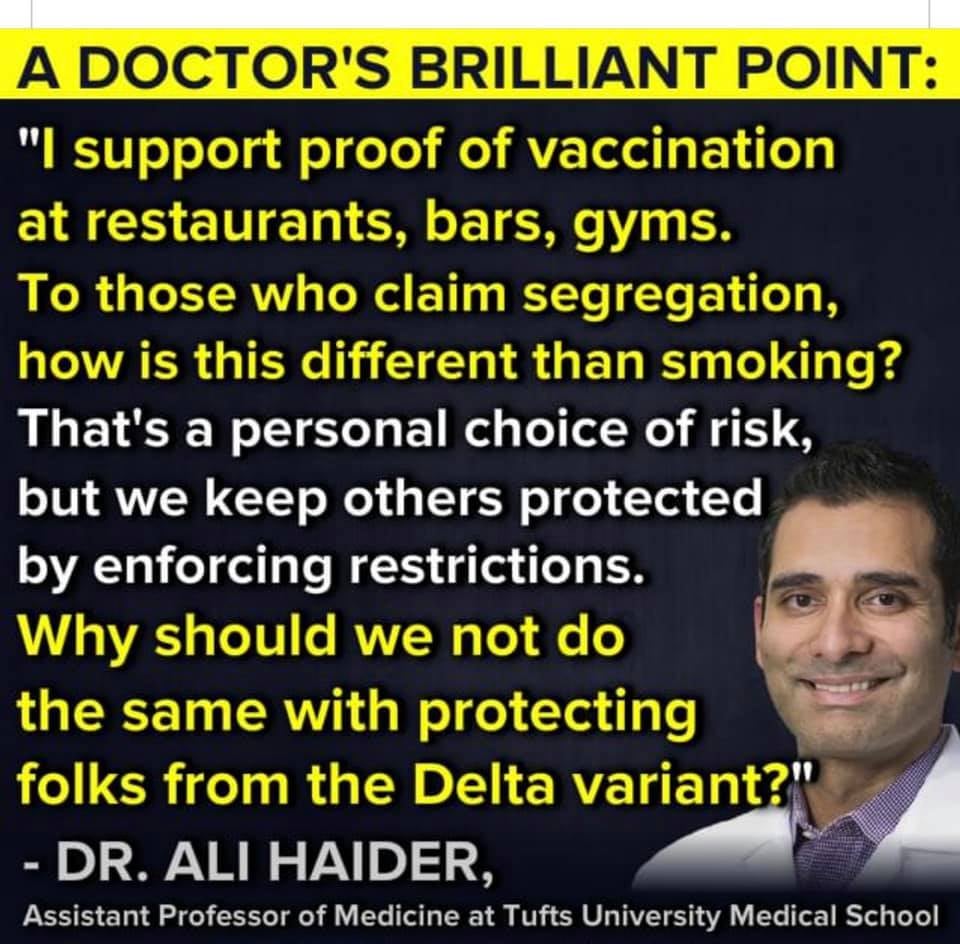Smoking is a different issue altogether. Non-smokers arguably suffers more from the second-hand smoke than smokers themselves. When it comes to infection, both the vaccinated and the unvaccinated carry the same risk. However, the vaccinated may actually suffer less from the infection, if one wants to argue it that way. So that’s a poor analogy.
To illustrate the point further, some F&B establishments* have segregated dining areas for smokers and non-smokers. So while there is segregation, there is no denying of access. And even for F&B establishments that imposed a blanket ban on smoking, smokers can still gain access by not smoking. The same can’t be said for a similar ban on the unvaccinated (at the point of time for whatever reason) as they cannot miraculously become vaccinated just to gain entry.
Here I’m not taking into consideration the merits of vaccination, but denying of access. It’s not segregation; it’s discrimination. I’m surprised an Assistant Professor can’t see through the flaw in his thinking.
*In this instance, we’re only talking about F&B establishments because that’s what is at stake in the current situation. Can you imagine if this denying of access is extended to essential services?

